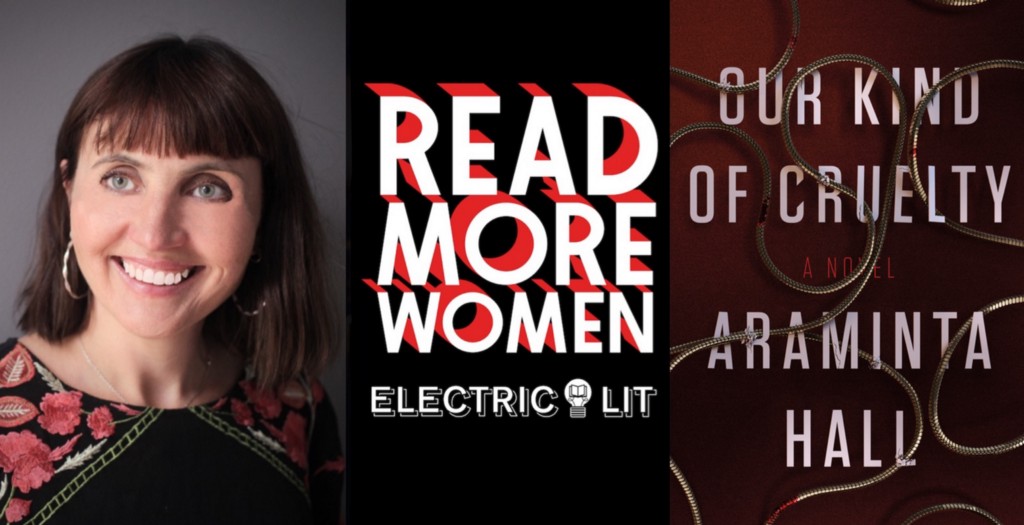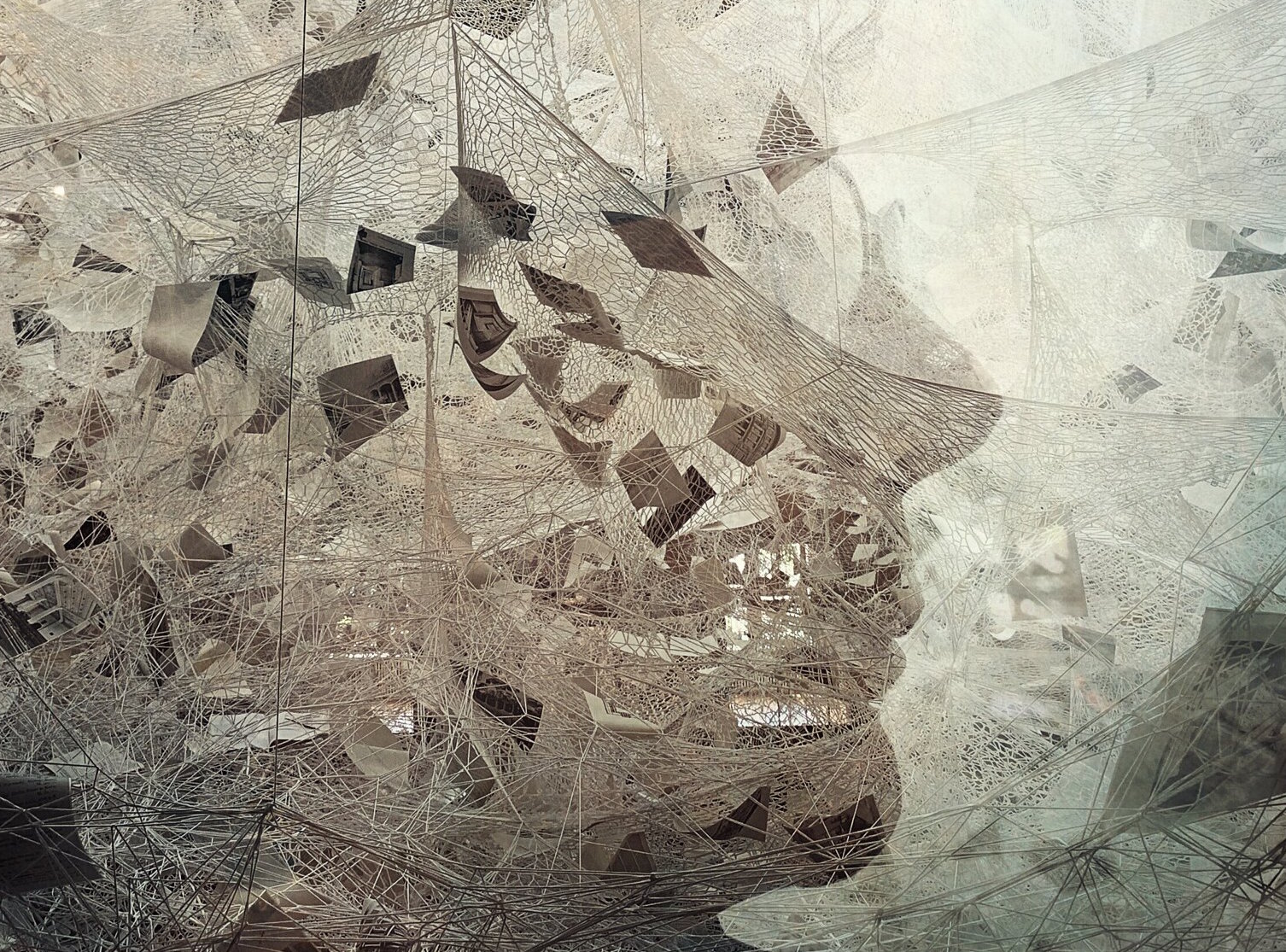Reading Lists
What To Read When You Can’t Think About Anything But How the World Has Gone to Hell
Books to help you keep perspective when everything is awful

In the last month of 2018, the third millennium appears to be going off the rails. The year’s grim news review would take awhile, and it’s not even quite over yet. Voter suppression, an alleged assaulter in the Supreme Court, and the blatant harassment of people #livingwhileblack by the Permit Patties and BBQ Beckys of the world, are just some of the year’s lowlights. Outside U.S. borders, there’s the chaos and limbo of the Central American caravan in Tijuana and a far-right president in Brazil who came to power despite the #EleNão (#NotHim) efforts of the Brazilian people — to list just two of a number of downbeat international developments.
To summarize: The environment, pretty much everywhere, is getting more screwed with each passing day. (That includes the literal environment, in the form of basically irremediable global climate change.) The abyss of despair that awaits each time I log on to Twitter has been overwhelming. I delete and reactivate the app on a weekly basis, and attempt (mostly short-lived) WiFi fasts to stem the psychic suck of the news. These tactics haven’t been all that effective. I’ve spent part of this year traveling in Mexico and have had many unsettling conversations about family, immigration, and borders. On the other side of the divide, I have been stunned by a couple of North Americans living in the region as “expatriates” who support the current U.S. administration’s policies on this front. Right around the time of these exasperating exchanges, desperate for evidence that humanity is not all wretched, I returned to the works of the great humanist Eduardo Galeano, the Uruguayan chronicler of Latin America’s history and global football, as well as the master creator of the vignette narrative form. Having swept through three books of his books, I can recommend Children of the Days: A Calendar of Human History as a soothing literary palliative for our unsavory times.
Galeano died in 2014, so he missed this latest episode of global malaise, but his writing on the difficult times still resonates today. In 2011, he published Children of the Days, a swirling, global history that begins on January 1 and ends on December 31. Each day brings a story that took place on that day in times past. The result is an alternative calendar of historical miscellany, delivered in sharp and often bemusing fragments that take leaps into fiction and poetry. For January 1, Galeano’s entry is entitled “Today,” which notes: “Today is not the first day of the year for the Mayas, the Jews, the Arabs, the Chinese or many other inhabitants of this world.” Still, Galeano encourages the acknowledgement that time “allows us, its fleeting passengers, to believe that this day could be the very first day, and it gives us leave to want today to be as bright and joyous as the colors of an outdoor market.”
After this hopeful start, Galeano rolls out pointed half-page fragments that demanded a gathering of my Internet-scattered attention. The ability to be devoted to these narrative slivers felt like balm in itself. Though my focus in reading was steady, Galeano’s is not; he jumps around the world and back and forth between centuries. On January 20, he notes that the Catholic church in Mexico forbade the representation of serpents on church buildings in 1585. While the Bible takes a low view of snakes, “America was a loving serpentarium,” where the reptiles were symbolic of good harvests and the god Quetzalcóatl. The next day, January 21, Galeano flings forward to 1779 and to James Cook surveying Hawaiian natives who “walked on the sea in communion with her energy.” The “walkers on water” stabbed Cook three weeks after this encounter. Galeano mockingly notes: “The magnanimous explorer, who had already given Australia to the British Crown, never could make a gift of Hawaii.”
People have been odious to each other for a long, long time.
As a compendium of historical curiosities, the book slaked my thirst for other places and times, which in part helped me momentarily slip away the present. The vignettes do get bleak — his subject is human history, after all. For December 3, for example, there is the tale of “The King Who Said ‘No More” to the trade of slaves. The ruler of the West African kingdom of Dahomey Agaja Trudo fought slavers and rivals until he couldn’t. Galeano writes: “Europe refused to sell him weapons if he did not pay in human coin.” Reading this vignette, as well as many others, I felt the transformative power of perspective. As much as 2018 has been a shit show, the world was once worse. People have been odious to each other for a long, long time. It was not quite the succor I wanted, but nevertheless it offered space to consider the continuity of history — and the fact that countries and people have (more or less, and certainly some more than others) survived other, more awful periods.
Galeano’s unsung characters also reminded me that human heritage is not only one of hatefulness. Resistance, sometimes joyful, features. For June 9, there’s the story of two Galician women, who in 1901, “had to invent a husband” to marry in a church. The scandalous news broke in Spain, forcing the women to flee. They were imprisoned in Portugal but managed to escape. “In the city of Buenos Aires the trail of the fugitives went cold” is Galeano’s winking end to the story. I’d like to think they had a terrific happily-ever-after. Triumphs, like this, sweeten the book, and provide life-affirming examples of acts of resistance by feisty individuals who lived in darker times.
The many stories of the endurance of the indigenous universe through the globe were heartening. December 12 is the feast day for the Virgin of Guadalupe, a celebration of the appearance of the Virgin Mary in Mexico City in 1531. “By a fortunate coincidence,” Galeano writes, tongue wryly in cheek, “her visit occurred precisely where Tonantzin, the Aztec mother god, had her temple.” The “outlawed gods” took the form of Catholic figures, such as the rainmaking Tlaloc as Saint John the Baptist and “Saint Isidore the Laborer Xochipilli” who “makes flowers bloom.”
“Silence,” the February 22 sketch, lauds the Greek poet Paul the Silentiary, who was the manager of silence in the palace of Emperor Justinian. Galeano quotes from his poem:
Your breasts against my breast,
your lips on my lips.
Silence is the rest:
Tongues that never pause I detest.
With all that competes for your attention on micro (Instagram, livelihood issues, etc.) and macro (white supremacy, environmental apocalypse, etc.) levels, true quietude, in your own mind and most definitely, in company, feels like an extravagance out of grasp.
Galeano implores us to slow and contemplate the possibilities of a more humane action in the world. Preferably while we are still alive.
With these miniatures, Galeano implores us to slow and contemplate the possibilities of a more humane action in the world. Preferably while we are still alive. Mortality, which is made acute by the non-linear fragmentation of narrative, pulses through the book. For his December 31 entry, “Voyage of the Word,” Galeano offers the Roman physician Sammonicus, who wrote that death could be kept “at bay: by hanging a word across your chest day and night.” That word was “Abracadabra,” which he translates into “Give your fire until the last of your days.” The word’s potency as an immortality talisman may be in question, but its essence, as distilled by Galeano, it is solid, shining guidance of how to be in the world.
Alternatives
My Year of Rest and Relaxation by Ottessa Moshfegh
Is the onslaught of the world making you want to fully check out? Drop out vicariously through Moshfegh’s unnamed narrator, a twenty-something recent Columbia grad who decides to take to her bed in the year 2000. Her aim, aided by pharmaceuticals, is to sleep 24/7. She’s got a fat inheritance so it’s doable. For the rest of us, the novel provides an animated fantasy: what would it be like to sleep our current reality off, job-free in one of the most expensive cities in the world? Not a great deal happens for the most of the novel but Moshfegh’s prose is strangely energizing and will keep you turning the pages. If misery, even the misanthropic kind, loves company, then Moshfegh’s dazzlingly dark world-avoider makes for a prickly and urbane companion.
Severance by Ling Ma
In Ling Ma’s debut novel, Millennial publishing functionary Candace survives the advent of Shen Fever, which decimates New York City. She initially chooses to stay at her job to gain a work bonus. With this, Ma takes office drudgery to the apocalyptic end and pokes at the market economy. The laughs (especially at the office-based ridiculousness) might help momentarily alleviate existential angst. Severance will likely also spark the question: If the world actually slides into a zombie-populated hell, what would you do? Perhaps some strategies might emerge. I am betting they won’t involve staying on at the office.
Friday Black by Nana Kwame Adjei-Brenyah
In his debut collection, Nana Kwame Adjei-Brenyah mines what’s off about our contemporary moment and combusts it all with surrealism. For example, “Zimmer Land,” set in a racism-themed park, might require reading breaks for its intensity. It’s definitely not comfort reading per se. However, if things are indeed going down the tubes, Adjei-Brenyah’s exhilarating writing makes for excellent, if provocative, reading for the ride. Here’s just one chilling line: “People say ‘sell your soul’ like it’s easy. But your soul is yours and it’s not for sale. Even if you try, it’ll still be there, waiting for you to remember it.”









